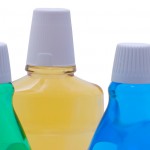
Xerostomia is a common condition that affects many adults. It is frequently caused by autoimmune diseases such as Sjögren’s syndrome and rheumatoid arthritis or as a result of drug-related side effects. The aim of the present study was to evaluate the efficacy and safety of an intraoral device and a Betaine (BET) containing mouthwash in treating xerostomia.
105 patients were randomised to one of three groups A (night guard), B (mouthwash), or C (night guard and mouthwash). All subjects reported a history of dry mouth of pharmacological origin. Patients had unstimulated salivary flow was measured and completed a xerostomia questionnaire and the Oral Health Impact Profile (OHIP)–14, before and after 4 weeks. Patient satisfaction was also recorded.Ninety patients (eight men and 82 women) completed the study.
They found that:-
- Symptoms of xerostomia were improved, with all 3 groups showing improvements in OHIP-14 scores and sialometry findings.
- There were no adverse effects and no statistical differences in patient satisfaction between the 3 groups.
The authors concluded that:-
The daily use of a night guard and BET containing mouthwash was seen to improve dry mouth during the 4-week duration of the study.
López-Jornet P, Camacho-Alonso F, Rodriguez-Aguado C. Evaluation of the clinical efficacy of a betaine-containing mouthwash and an intraoral device for the treatment of dry mouth. J Oral Pathol Med. 2011 Sep 22. doi:10.1111/j.1600-0714.2011.01088.x. [Epub ahead of print] PubMed PMID: 21950587.

this would chime with the following paper by
Yamamoto K, Nagashima H et al. Oral Surg Oral Med Oral Pathol Oral Radiol Endod 2008;106:e11-e14
They reported that the use of a night-guard would appear to alleviate the symptoms of sleep-related xerostomia.In this study, subjective symptoms of sleep-related xerostomia were measured using a VAS.